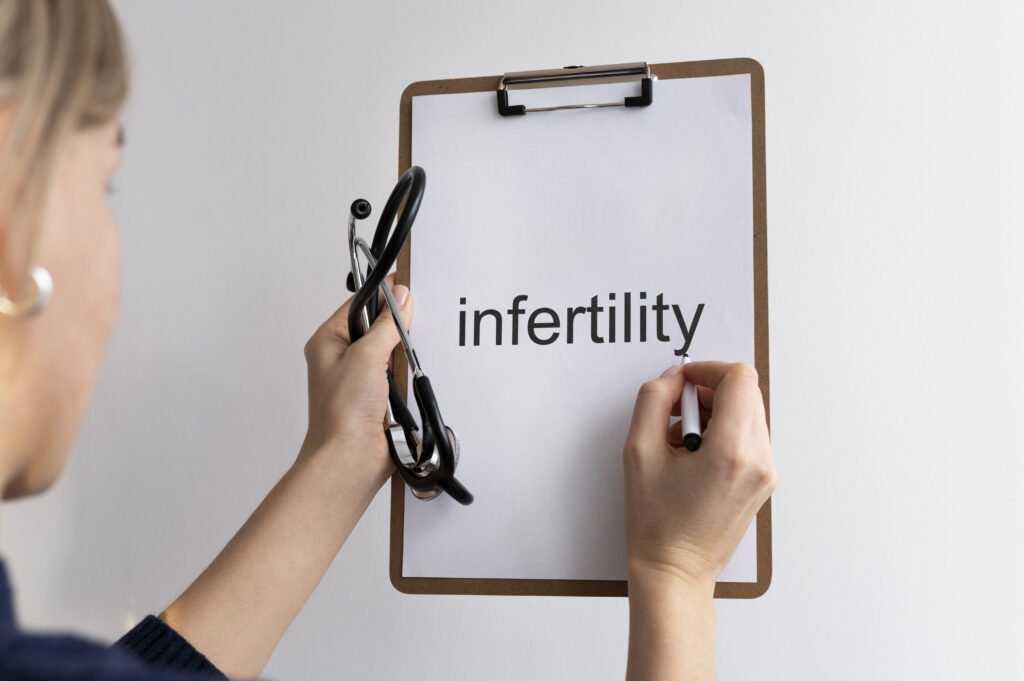Fertility is a topic shrouded in myths, misinformation, and half-truths that often leave couples confused and overwhelmed. In this article, we’ll debunk some of the most common myths about fertility and provide clear, evidence-based insights. If you’re facing challenges, trust Lifeline Hospital—the best fertility hospital in Kochi—to guide you with expert care and state-of-the-art treatments.
Understanding Fertility and Its Complexities
The Basics of Fertility
Fertility refers to the ability to conceive and carry a pregnancy to term. While some assume it’s a straightforward process, it involves a complex interplay of hormones, genetics, and environmental factors.
How Lifestyle Affects Fertility
Your everyday choices—diet, exercise, and stress levels—play a significant role in reproductive health. Factors like smoking, alcohol, and poor nutrition can reduce fertility in both men and women.

Myth #1: Only Women Are Responsible for Fertility Issues
The Role of Men in Fertility
One of the most widespread misconceptions is that infertility is solely a woman’s problem. In reality, men contribute to about 40-50% of infertility cases due to issues like low sperm count or motility.
Addressing the Gender Bias in Fertility Discussions
It’s crucial to address societal stereotypes. Fertility challenges affect both genders equally, and both partners should undergo evaluations during fertility investigations.
Myth #2: Age Doesn’t Matter as Long as You’re Healthy
Biological Clock vs. Health
While maintaining good health is essential, age is a significant factor in fertility. Women experience a decline in egg quality and quantity after their mid-30s, while men may face reduced sperm quality over time.
How Age Affects Men and Women Differently
Though women’s fertility is often discussed, men’s age-related decline in fertility can also affect conception rates and increase the risk of genetic abnormalities in offspring.
Myth #3: Infertility is Always Permanent
Advances in Fertility Treatments
Modern medicine has made incredible strides in treating infertility. Techniques like IVF, IUI, and hormone therapies can help many couples achieve their dream of parenthood.
Role of Specialized Fertility Clinics Like Lifeline Hospital, Kochi
With cutting-edge technology and compassionate care, Lifeline Hospital provides tailored fertility solutions, offering hope where once there was despair. Visit Lifeline Hospital in Kochi to explore advanced fertility options.

Myth #4: Stress Is the Primary Cause of Infertility
The Impact of Stress on Reproductive Health
While stress can affect overall health, it’s rarely the sole cause of infertility. In many cases, medical conditions play a more significant role.
Scientific Evidence vs. Misconceptions
Studies show that while stress may delay ovulation or reduce sperm quality temporarily, it is not a definitive cause of long-term infertility.
Myth #5: Conception Is Always Easy After the First Child
Understanding Secondary Infertility
Secondary infertility—difficulty conceiving after a previous pregnancy—is surprisingly common. Causes can include hormonal imbalances, age-related factors, or new health conditions.
Causes and Solutions for Second-Time Challenges
Consulting fertility specialists can help identify the underlying causes and create a tailored treatment plan to address secondary infertility.
Myth #6: Fertility Treatments Always Result in Twins or Triplets
The Reality of Modern Fertility Treatments
Movies and TV shows often exaggerate the outcomes of fertility treatments. With advanced methods, the risk of multiple pregnancies has significantly reduced.
Individualized Treatment Approaches
Clinics like Lifeline Hospital prioritize personalized care, ensuring treatments are safe and effective while minimizing risks.
Myth #7: Birth Control Causes Long-Term Infertility
How Contraceptives Work
Birth control methods temporarily prevent pregnancy but do not damage fertility in the long term. Fertility typically returns to normal after discontinuing usage.
Fertility After Stopping Birth Control
Most women can conceive within a few months of stopping birth control, although individual timelines may vary.
How to Separate Fact From Fiction
Importance of Consulting Specialists
When it comes to fertility, expert advice is invaluable. Relying on hearsay or online myths can delay proper diagnosis and treatment.
The Role of Trusted Clinics Like Lifeline Hospital
Choosing the right clinic is crucial for accurate guidance and advanced treatments. Lifeline Hospital in Kochi is known for its exceptional infertility care.

Tips to Improve infertility Naturally
Diet and Nutrition
Eating a balanced diet rich in antioxidants, vitamins, and minerals can boost infertility. Include foods like leafy greens, berries, and whole grains.
Exercise and Stress Management
Regular exercise and mindfulness practices like yoga or meditation can improve overall reproductive health.
Why Choose Lifeline Hospital in Kochi for Fertility Care
At Lifeline Hospital, you’ll find experienced professionals, advanced treatments, and a supportive environment to guide you every step of the way. Learn more at Lifeline Hospital.
FAQs
Can a healthy lifestyle guarantee infertility?
While a healthy lifestyle enhances fertility, it doesn’t eliminate all potential medical issues.
Are fertility treatments unaffordable for most couples?
Costs vary, but many clinics offer affordable options or payment plans.
Do fertility treatments guarantee success?
Success rates depend on individual factors, but treatments significantly increase the chances.
Is it normal to have irregular periods and still conceive?
It’s possible, but irregular cycles can signal underlying issues. Consult a doctor.
Can men improve their fertility naturally?
Yes, by maintaining a healthy weight, avoiding smoking, and reducing alcohol intake.

